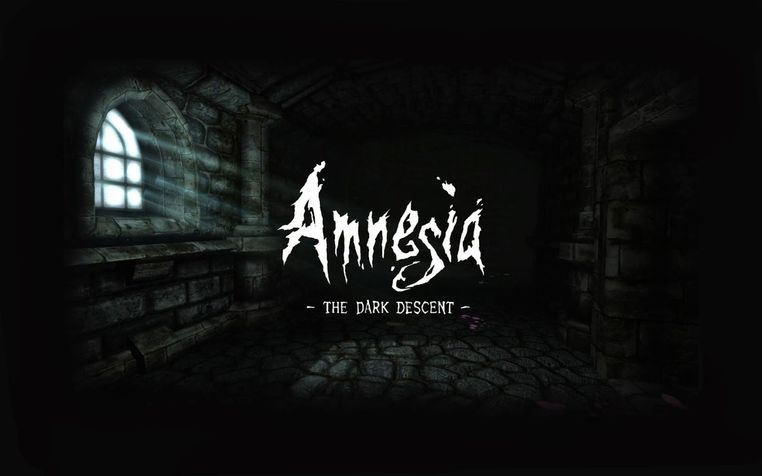Amnesia
There’s something unique about horror games. They require a degree of immersion beyond that of most games. There are games that require no immersion at all, like city-builders or casual games, where it’s fine to know you’re playing a game, and indeed, that’s part of the fun. It’s you and your skill that are being challenged, not the character’s because there is no character. RPGs and FPSs, while they benefit from immersion, don’t need it. The character is a vessel for the player’s skill, but doesn’t necessarily need any more humanity than that. It is the player who explores these areas, and does so through a proxy. For horror, though, the player is rarely the one caught in whatever helltrap awaits them. Instead, the trick of horror is in viewing the horrifying through the eyes of a character who does not know what genre they’re in, and who does not know what to expect. For horror to be successful, the player has to be lost within the character’s experience. That separation between player and character must dissolve, leaving only a singular experience. Gameplay needs to complement the atmosphere and sense of immersion rather than work against it. It’s why Among the Sleep works so well, and it’s why Ann does not. Horror requires more than jump scares or ghosts. It requires that the player themselves forget this is a game and feel their own heartbeat as they peek around every corner.
Amnesia: The Dark Descent is a horror adventure game. The player plays as Daniel, a man who wakes up in a spooky castle with no memory of who he is or why he’s there. As he explores the castle, he finds more and more clues about his own identity, including the message that he must kill Alexander, and something is following him. As more and more of his story is revealed, the true horror of why he is in the castle and what his goal is becomes clearer, as does the urgency with which he moves. To make progress, he must solve simple puzzles, avoid monsters, and fight back against the horrors that threaten to strip him of what little sanity he has left.
Horror requires that the barrier between player and character be stripped away, and that the player feels like it is they who are experiencing this terrifying place. Amnesia is a master class in how to achieve that sensation. From the moment they open the game, the player is immediately immersed in a world of shadow and light, with excellent sound design that not only tells the player valuable information about the game, but creates an atmosphere of utter paranoia. The constant sounds provide a soundtrack that simultaneously builds the horror of the world, while also never giving away more than it needs to. The jump scares are organic, as bits of the castle collapse around you, and all of leads to a sense of being trapped, where the only way out is forward.
Interestingly, Amnesia focuses on darkness and shadow as one of its major mechanics. As Daniel explores the castle, he finds various ways to create light, whether it be through a lantern that he carries, or through lighting various candles and lamps with a dwindling supply of tinder boxes. However, it isn’t always strictly necessary to create light. Amnesia includes a mechanic where Daniel’s sight adjusts to darkness. If he lights the wrong lamp at the wrong time, some clue lying just beyond the light’s glare might become invisible. Daniel needs the light to regain his sanity and fight off the horror, but it comes at a cost. This mechanic creates an excellent interplay between the player’s initial inclinations, and the recognition of the need to sometimes stay shrouded.
Amnesia also follows the logic that the horrors that lurk in the dark can’t be fought. Instead, Daniel’s options are to hide or fight from the various monsters that prowl the castle. This, too, heightens the sense of horror, as it instills a sense of powerlessness. Daniel huddles in the dark as a monster passes by, knowing that the dark ekes at his mind, but also knowing that to creep out too soon is to condemn himself to the monster. Amnesia, again, does an excellent job balancing all of its various horror mechanics.
The best feedback I can give this game, though, is to describe my own experience playing it. As I sat in my (well-lit, comfy couched) room, I jumped when rocks fell, felt my heart quicken when I saw a monster, turned to investigate sounds and hating myself for it, knowing there was nothing there. I squealed at a few scares, and got closer and closer to my laptop, peering into the darkness. Horror requires the removal of the barrier between player and character. Amnesia stripped it all away. While I played it, it wasn’t Daniel, but me who was trapped in that castle, trying to figure out what I had done and how I could escape. Amnesia: The Dark Descent is an absolute masterpiece of its genre, and even thirteen years later, it still summons a sense of fear and horror incomparable to any other.
Developer: Frictional Games
Genre: Horror, Adventure
Year: 2010
Country: Sweden
Language: English
Play Time: 8 Hours
Youtube:
